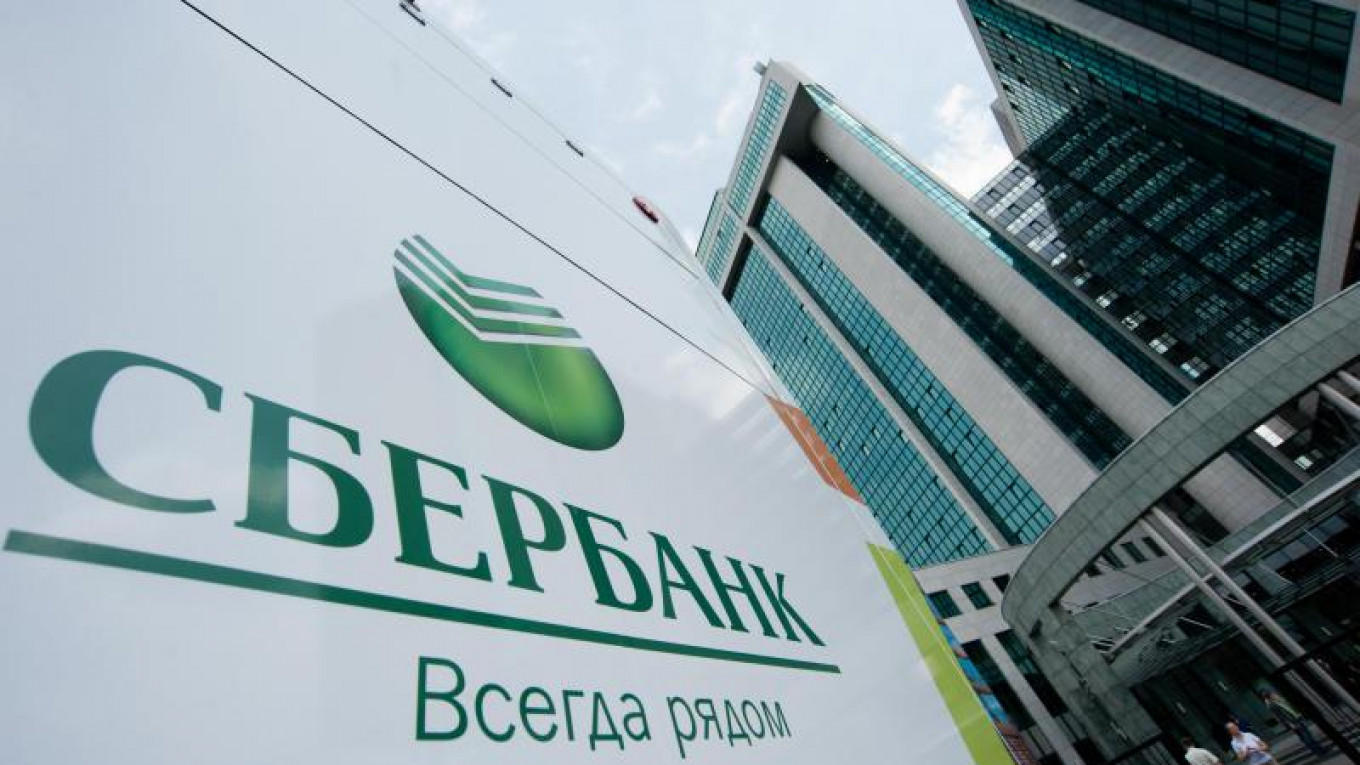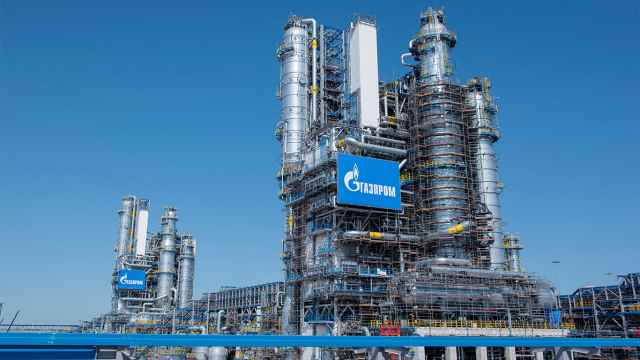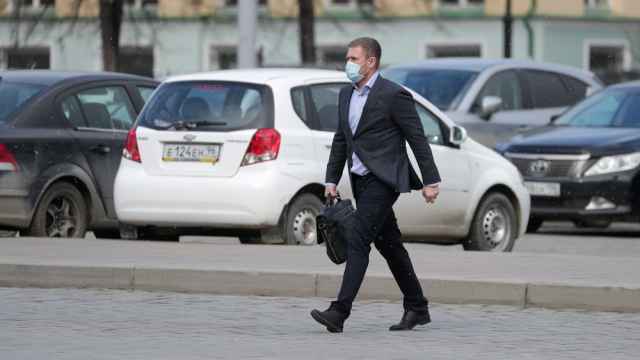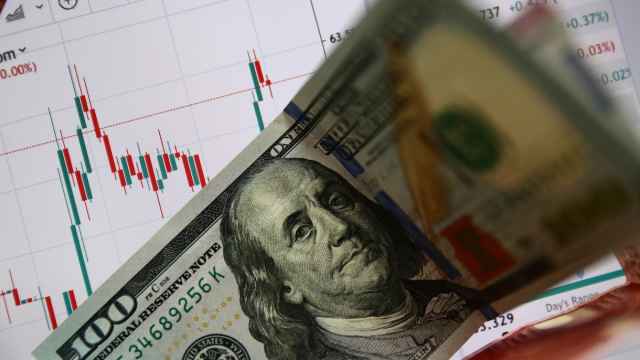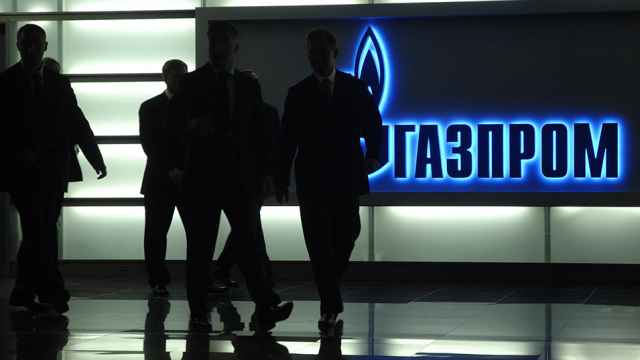Sberbank’s capitalization on the Moscow Stock Exchange reached 3.24 trillion rubles as of Friday, Aug. 26, while Gazprom’s stood slightly lower at 3.19 trillion rubles. Rosneft remains Russia’s most valuable company, with capitalization of 3.72 trillion rubles.
Sberbank’s ordinary shares rose through trading by 1.69 percent
to 145.25 rubles. Preferred shares were up 1.25 percent to 104.09
rubles, and the MICEX index rose by 0.39 percent.
“It seems Gazprom will have to live with this new reality,”
said BCS trading department chief Maxim Ryabov. He said Sberbank’s
financial results are outperforming all forecasts, increasing share
value, whereas Gazprom has failed to keep pace. “Gazprom has yet to
implement any structural changes, and until it does, the company will
slowly fall behind,” Ryabov said. The price of Sberbank ordinary
shares has risen by 43.4 percent since the start of the year, while
preferred shares were up 36 percent. Gazprom securities grew by
just 0.1 percent, while the MICEX index increased by 13.7 percent
over that period.
Very little has improved at Gazprom, said Capital portfolio
manager Vadim Bit-Avragim. “Internal efficiency has not improved,
and the additional tax burden, low demand for gas, and strong
competition from the European market are all negative factors,” he
said. The opposite is true of Sberbank, he argued: The state-owned
bank is benefitting from the reduction in funding costs, and Sberbank
gained new market share after the Central Bank conducted a “financial
cleansing” of the banking sector.
Gazprom does not have a program in place for increasing
capitalization, but “is taking steps” toward that end, said a
company representative, who added that part of the bonus top managers
receive is based on the stock price. Sberbank earned 263.1 billion
rubles in the first six months of 2016, with Q2 earnings making up 145.4
billion rubles. That exceeds analysts’ most
optimistic expectations.
Analytical firms UBS and Citi were closest to the mark, predicting
that Sberbank would earn 248.3 billion rubles for the first six
months and 145.4 billion rubles in the second quarter. “The main
factor influencing the price of Sberbank shares is the growth in
profitability due to a recovery in net interest margins and a
normalization of transfers to reserves,” UBS analyst Mikhail
Shlemov said.
Sberbank’s capitalization first equaled that of Gazprom on Thursday, Aug. 25, on the heels of a positive company report and an
announcement by Sberbank leaders that dividends might increase in the
medium term, Bit-Avragim said. The Sberbank press service mentioned
the same reasons for the increase in comments on Friday.
One owner of Sberbank shares said they make a good investment. “I
plan to sell mine when the price reaches 150 rubles,” he said.
“According to my estimates that should happen in September or
October, although, considering the latest reports, it could be even
sooner.”
From May 2015 to May 2016, Sberbank increased its share of foreign
investors by 2.3 percent to 45.6 percent, while the share of Russian
investors fell from 2.8 percent to only 1.3 percent, Sberbank deputy
chairperson Bella Zlatkis said in May.
International investors might also keep demand for Sberbank shares
high now — as opposed to Gazprom securities. And although Russian
shares experienced an outflow of funds during the week of Aug. 24,
fund managers at EMEA (Europe, Middle East, Africa) generally
continue to hold a significant share of assets in financial sector
securities, EPFR Global said in a report released on Friday. On
average, that share is close to the record level seen at the end of
Q4 2015. At the same time, fund managers reduced investments in
shares of raw materials and energy companies in the region.
A Message from The Moscow Times:
Dear readers,
We are facing unprecedented challenges. Russia's Prosecutor General's Office has designated The Moscow Times as an "undesirable" organization, criminalizing our work and putting our staff at risk of prosecution. This follows our earlier unjust labeling as a "foreign agent."
These actions are direct attempts to silence independent journalism in Russia. The authorities claim our work "discredits the decisions of the Russian leadership." We see things differently: we strive to provide accurate, unbiased reporting on Russia.
We, the journalists of The Moscow Times, refuse to be silenced. But to continue our work, we need your help.
Your support, no matter how small, makes a world of difference. If you can, please support us monthly starting from just $2. It's quick to set up, and every contribution makes a significant impact.
By supporting The Moscow Times, you're defending open, independent journalism in the face of repression. Thank you for standing with us.
Remind me later.


